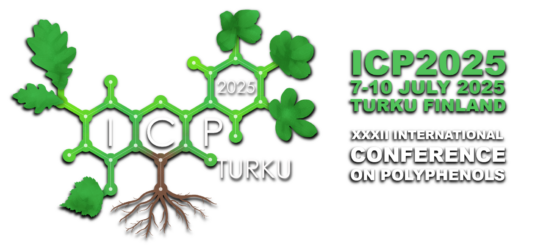The final programme is now ready!
Click below for the final programme operated under the Oxford Abstracts system. The conference participants will have access to all of the 1-page manuscripts simply by clicking the presentation they want to know in more detail.
See below also for the overall schedule and short introductions of the scientists giving the plenary lectures.
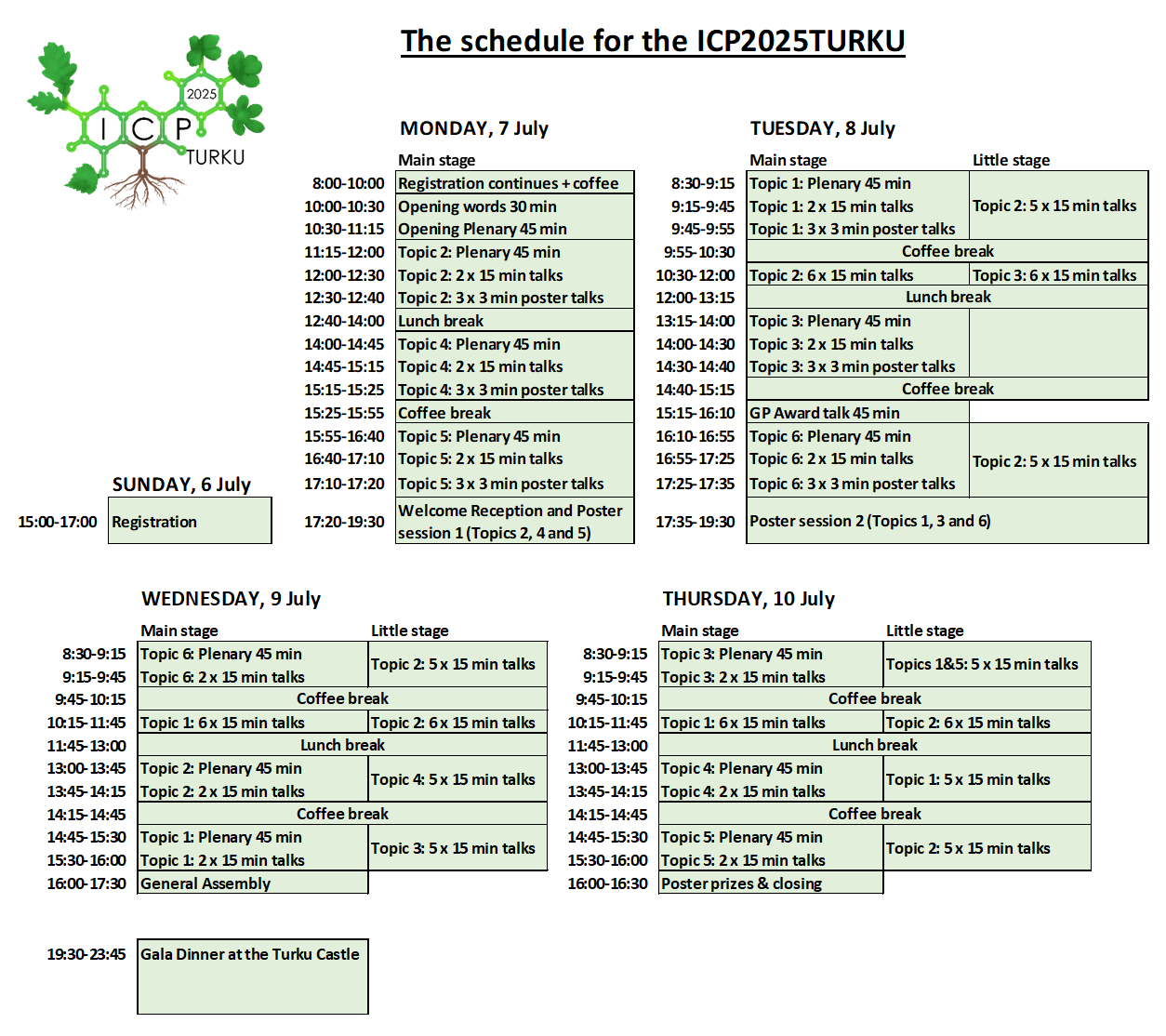
Polyphenol topics of the ICP2025TURKU
- Structure, Reactivity & Synthesis
- Bioactivity, bioavailability & microbiota
- Metabolomics, targeted analysis & big data
- Food processing, sensory properties, safety
- Biodiversity, biogenesis in plants & ecosystems
- Biomaterials, green chemistry & circular bioeconomy
Invited speakers
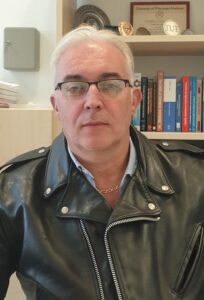 Stéphane Quideau was born in Lannilis, Brittany, France, in 1966. After completing his undergraduate studies at the University of Nantes in 1989, he moved to the USA and obtained his PhD from the University of Wisconsin-Madison in 1994 under the supervision of Prof. John Ralph. After a postdoctoral stint at The Pennsylvania State University in the laboratory of Prof. Ken S. Feldman, he was recruited by Texas Tech University as Assistant Professor. In 1999, he moved back to France as Associate Professor (PR2) at the University of Bordeaux, and joined the European Institute of Chemistry and Biology as Group Leader from 2003 to 2013. Junior Member of the “Institut Universitaire de France” (IUF) from 2004 to 2009, he was promoted Full Professor (PR1) in 2005. He was awarded the Acros Prize from the French Chemical Society and the Henri Labbé Prize from the French Academy of Sciences in 2006. In 2008, he received the Scientific Prize of the “Groupe Polyphénols” Society, was elected President of this international scholarly society for the following four years, and served as Editor-in-Chief of the Recent Advances in Polyphenol Research Wiley-Blackwell book series from 2009 to 2023. In 2017, he was promoted to the highest rank of the Exceptional Class of the French University Professors, and received the Organic Chemistry Division Prize of the French Chemical Society. He received the Tannin Award in 2018, and was nominated IUF Senior Member in 2019. Studying the chemistry and chemical biology of bioactive plant polyphenols is one of the main research themes addressed by his group, with current focus on the total synthesis of ellagitannins and the identification of the target proteins of bioactive plant polyphenols by chemoproteomics. A second main area of research concerns the chemistry of hypervalent iodine, including the conception of novel chiral iodanes for applications in total synthesis of natural products.
Stéphane Quideau was born in Lannilis, Brittany, France, in 1966. After completing his undergraduate studies at the University of Nantes in 1989, he moved to the USA and obtained his PhD from the University of Wisconsin-Madison in 1994 under the supervision of Prof. John Ralph. After a postdoctoral stint at The Pennsylvania State University in the laboratory of Prof. Ken S. Feldman, he was recruited by Texas Tech University as Assistant Professor. In 1999, he moved back to France as Associate Professor (PR2) at the University of Bordeaux, and joined the European Institute of Chemistry and Biology as Group Leader from 2003 to 2013. Junior Member of the “Institut Universitaire de France” (IUF) from 2004 to 2009, he was promoted Full Professor (PR1) in 2005. He was awarded the Acros Prize from the French Chemical Society and the Henri Labbé Prize from the French Academy of Sciences in 2006. In 2008, he received the Scientific Prize of the “Groupe Polyphénols” Society, was elected President of this international scholarly society for the following four years, and served as Editor-in-Chief of the Recent Advances in Polyphenol Research Wiley-Blackwell book series from 2009 to 2023. In 2017, he was promoted to the highest rank of the Exceptional Class of the French University Professors, and received the Organic Chemistry Division Prize of the French Chemical Society. He received the Tannin Award in 2018, and was nominated IUF Senior Member in 2019. Studying the chemistry and chemical biology of bioactive plant polyphenols is one of the main research themes addressed by his group, with current focus on the total synthesis of ellagitannins and the identification of the target proteins of bioactive plant polyphenols by chemoproteomics. A second main area of research concerns the chemistry of hypervalent iodine, including the conception of novel chiral iodanes for applications in total synthesis of natural products.
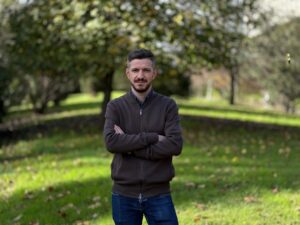
Luís Cruz (LC) has concluded the PhD in Chemistry (2010) at the Faculty of Sciences of the University of Porto (FCUP) studying the reactivity and chemistry of polyphenols towards the synthesis of novel compounds relevant to wine color evolution. During his PostDoc (2011-2016), LC performed physical-chemical characterization of polyphenolic-based dyes unveiling molecular-level mechanisms behind their optical properties. In 2017, LC got a Research Contract to exploit novel approaches for anthocyanins color stabilization through supramolecular interactions. From 2018-2023, LC got an Assistant Research Contract for developing stimuli-responsive polyphenol-based materials for food, cosmetics, and biomedical applications. Currently, LC is Principal Researcher at Associated Laboratory for Green Chemistry (LAQV) of the Network of Chemistry and Technology (REQUIMTE) to develop a career project entitled “An innovative integrated platform to increase food safety and food waste reduction”. LC was Invited Assistant Professor at FCUP between 2018-2022, and since 2017, Invited Adjunct Professor at the Medical School of Polytechnic Institute of Porto. LC published 63 papers, 3 reviews, 3 book chapters, over 1500 citations (h-index 23). LC was PI in 2 research projects (240k€) and participated in 10+ projects as a team member (880k€). LC has concluded the (co)supervision of 1 post-doc researcher, 2 PhD and 2 MSc students, 4 research fellows, and 8 undergraduate students, mentored 3 foreign PhD students, and currently supervising 2 PhD students, and several graduation students. LC gave 5 invited keynote lectures, presented +25 oral and +45 poster communications in scientific conferences. LC was internationally recognized by EuChemS as the Best Portuguese Organic Chemist under 40 years old (2019). LC won 2 travel grants from “Groupe of Polyphenols” and 1 poster prize at an international conference. LC has been the main arguer of academic degrees (2 PhD, 1 MSc), Guest Editor of Special Issues, had an intense reviewer activity in many SCI journals, and participated in organizing committees of scientific conferences.
 Andreas Schieber graduated in Food Chemistry from the University of Stuttgart, Germany. He received his doctoral degree in 1996 and his venia legendi (Chemistry and Technology of Foods) in 2004 from the University of Hohenheim, Stuttgart, Germany. From 2008 to 2011, he was a Professor and Canada Research Chair in Functional Foods and Nutraceuticals at the University of Alberta, Edmonton, Canada. He has been a Full Professor at the University of Bonn since 2011, where he holds the Chair of Molecular Food Technology. His research interests center around secondary plant metabolites, in particular phenolic compounds and carotenoids, valorization of side streams of food processing, food authentication, and the effects of processing on food ingredients. Reactions of plant phenols are a major topic of his current research activities. He has published more than 280 original contributions, reviews, editorials and book chapters. He was an Associate Editor of Food Research International from 2013 to 2017 and is a member of the Editorial Advisory Board of Journal of Agricultural and Food Chemistry, the Editorial Board of Current Opinion in Food Science, and the Advisory Board of Sustainable Food Technology. He is the recipient of several national and international research awards and received the 2020 Teaching Award of the University of Bonn for outstanding contributions to teaching.
Andreas Schieber graduated in Food Chemistry from the University of Stuttgart, Germany. He received his doctoral degree in 1996 and his venia legendi (Chemistry and Technology of Foods) in 2004 from the University of Hohenheim, Stuttgart, Germany. From 2008 to 2011, he was a Professor and Canada Research Chair in Functional Foods and Nutraceuticals at the University of Alberta, Edmonton, Canada. He has been a Full Professor at the University of Bonn since 2011, where he holds the Chair of Molecular Food Technology. His research interests center around secondary plant metabolites, in particular phenolic compounds and carotenoids, valorization of side streams of food processing, food authentication, and the effects of processing on food ingredients. Reactions of plant phenols are a major topic of his current research activities. He has published more than 280 original contributions, reviews, editorials and book chapters. He was an Associate Editor of Food Research International from 2013 to 2017 and is a member of the Editorial Advisory Board of Journal of Agricultural and Food Chemistry, the Editorial Board of Current Opinion in Food Science, and the Advisory Board of Sustainable Food Technology. He is the recipient of several national and international research awards and received the 2020 Teaching Award of the University of Bonn for outstanding contributions to teaching.

She is Full Professor of Nutrition and Food Science at University of Barcelona and ICREA Academia.
She has been one of the most influential scientists in the world according the Highly Cited Researchers list, published by Clarivate Analytics, during five consecutive years, since 2017. She has published more than 40 papers in the last five years and her h-index in Google Scholar is 120.
She is the leader of the Polyphenol Research Group (www.polyphenolresearch.com). Her research group has been recognized as a consolidated group by the Generalitat de Catalunya Science Ministries. She also leads a CIBEROBN (ciberobn.es) research group since 2012.
She has been the Director of the Research Institute of Nutrition and Food Safety (INSA-UB) since 2015 to 2023, that it has been recognized as María de Maeztu excellent unit in 2022.
She was been awarded with the XXV Premio Instituto Danone a la Trayectoria Científica “Dr. Carles Martí Henneberg” in December 2018 and by the Research.com, as the Third Best Spanish Female Scientist Award, in 2022.
Dr. Lamuela-Raventos is the principal investigator of the research group “Natural Antioxidants: Polyphenols” and leads one of CIBEROBN’s investigation groups.
She is involved in important national and international projects related to the nutritional interest of bioactive compounds present in food and natural products and their impact on health.

Pedro Mena is an Associate Professor of Human Nutrition. His research lines focuses on the bioavailability and bioactivity of plant bioactives, with a particular emphasis on (poly)phenolic compounds and interindividual variability, where his team develops realistic, translatable initiatives based on stratified and precision nutrition. Among other achievements, he has been awarded an ERC grant on this topic (PREDICT-CARE), leads the precision nutrition WP of the largest Italian consortium on food and nutrition ever (ONFOODS), and participates from a cutting-edge project on precision nutrition for lung cancer patients (EIC Pathfinder MENTORING).
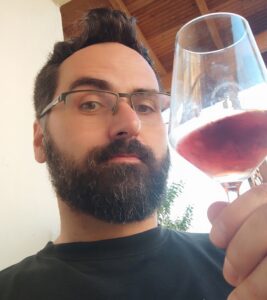
Panagiotis Arapitsas is an assistant professor at the Department of Wine, Vine & Beverage Sciences of the University of West Attica since 2021, and a researcher at Fondazione Edmund Mach since 2010. He got his degree in Oenology and Beverage Technology in 2002 from Athens Technological University of Applied Sciences and later continued his studies at the University of Florence where he obtained a master in Methods of Synthesis in Organic Chemistry in 2004 and a PhD in Polyphenols Chemistry and Food Quality in 2008. In 2010 he joined Fondazione Edmund Mach, as researcher, where his activity was focused in Food and Wine Metabolomics.He is member of the Board Committee of «Groupe Polyphénols», member of the Scientific Committee of «In Vino Analytica Scientia», and member of Metabolomics Quality Assurance and Quality Control Consortium. His main research interests are focused on Food Chemistry, Wine Science, Polyphenols, Metabolomics and F.A.I.R. principles.

David completed a PhD on the development of methodology for the stereoselective synthesis of polypropionate marine natural products and worked at the Australian Wine Research Institute for over five years before moving to the University of Adelaide in 2010, where he is now Associate Professor in Wine Science. David has experience with the synthesis of aromatic heterocycles and a strong analytical chemistry background and uses these experiences for the isolation, identification, synthesis and analysis of interesting and complex molecules from nature, especially in the pursuit of improved knowledge about grape and wine chemistry.
David’s group conducts research in the areas of aroma, flavour, and polyphenol chemistry, undertaking and overseeing analytical method development, compound synthesis, and isolation/characterisation of grape and wine components. The effect of vineyard and winemaking conditions on grape and wine composition is evaluated through a range of experiments and application of techniques such as HPLC-MS/MS, GC-MS, and spectrofluorometry, in combination with multivariate data analysis methods.
David has more than 130 peer-reviewed publications and is co-author of Understanding Wine Chemistry, a modern wine chemistry textbook in its second edition that is used in wine science programs throughout the world. He has been recognised with awards for excellence in research student supervisory practice, distinguished contribution to grape and wine research and teaching, and excellence in analytical chemistry, among others.
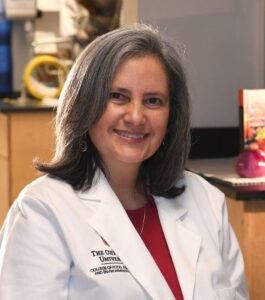 M. Mónica Giusti is a Distinguished Professor of the College of Food, Agricultural and Environmental Sciences and Associate Department Chair at the Food Science and Technology Department, at The Ohio State University. She is also Visiting Professor at the Universidad Nacional Agraria, La Molina, Peru. She leads the Giusti Phytochemicals Laboratory in the study of the chemistry and functionality of flavonoids, potent plant antioxidants, with emphasis on anthocyanins and their application as natural food colorants. Dr. Giusti’s research has generated 140 peer-reviewed journal articles in high impact journals, 30 book chapters, 4 edited books and 9 patents with more pending. Her work is highly cited, with over 24,000 citations (according to Google Scholar) and an h-index of 63.
M. Mónica Giusti is a Distinguished Professor of the College of Food, Agricultural and Environmental Sciences and Associate Department Chair at the Food Science and Technology Department, at The Ohio State University. She is also Visiting Professor at the Universidad Nacional Agraria, La Molina, Peru. She leads the Giusti Phytochemicals Laboratory in the study of the chemistry and functionality of flavonoids, potent plant antioxidants, with emphasis on anthocyanins and their application as natural food colorants. Dr. Giusti’s research has generated 140 peer-reviewed journal articles in high impact journals, 30 book chapters, 4 edited books and 9 patents with more pending. Her work is highly cited, with over 24,000 citations (according to Google Scholar) and an h-index of 63.
Dr. Giusti has been recognized by her innovative work with multiple teaching and research awards, including the 2021 CFAES Distinguished Graduate Student Mentor Award, the 2020 CFAES Senior Faculty Researcher of the Year Award, the 2019 IFT William V. Cruess Excellence in Teaching Award, and the 2017 Educator Award from the North American Colleges and Teachers of Agriculture. In 2021 she was named a Fellow of the National Academy of Inventors, and in 2023 named Fellow of the Institute of Food Technologists.
Dr. Giusti, born in Lima, Peru, received a Food Engineer degree from the Universidad Nacional Agraria, and master’s and PhD in Food Science from Oregon State University.
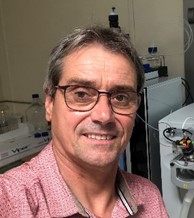
Sylvain Guyot is currently Director of Research at INRAE (French National Institute for Agriculture, Food and Environment) in Le Rheu, France. He obtained his PhD in biochemistry in 1994 and his HDR (Accreditation to supervise research) in 2006. He is currently head of the "Polyphenols, Reactivity & Processes" team in the INRAE-BIA (Biopolymers, Interactions and Assemblies) Research Unit. He’s also scientific co-leader of the P2M2 Mass Spectrometry Analytical Platform. He has over 30 years' research experience in the field of plant phenolic compounds and their biochemical and chemical reactivity in fruits and vegetable processed products. He has particular expertise in polyphenols in cider production. He is currently the author of over 110 publications in peer-reviewed journals, with an h-index of 39 and has been cited over 5000 times.

Laura Jaakola is Professor in Plant Biology at UiT The Arctic University of Norway and the Research leader of Climate laboratory in Tromsø, which is the northernmost phytotron facility in the world focusing on studying the effect of climate conditions on the growth, quality and the resilience of plants. She is a plant physiologist and molecular biologist, and the special interest in her research has been understanding the regulation of the anthocyanin biosynthetic pathway during the fruit development affected by the environmental and genetic factors. Within this topic she has been pioneering the molecular biological work with Nordic wild berries, especially Vaccinium species which are among of the best sources of the health beneficial phenolic compounds. She has a wide international research collaboration network, and she has authored over 100 peer-reviewed publications that have been cited over 7000 times.
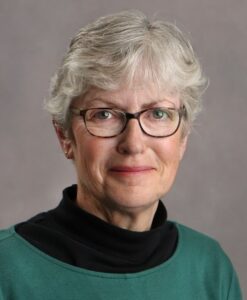
Brenda S.J. Winkel is a Professor of Biological Sciences at Virginia Tech. Work in her group over the past 30 years has aimed to advance understanding of the physical organization of metabolic pathways in cells, with a particular focus on flavonoid metabolism, a long-standing target for synthetic biology. This research generated the first evidence for direct protein interactions among enzymes of specialized metabolism, both in vitro and in vivo; uncovered the surprising localization of flavonoid enzymes in the nucleus; and suggested that one of these proteins may have alternative (moonlighting) functions associated with histone remodeling. Most recently, Prof. Winkel’s group uncovered evidence for a connection between flavonoids and the circadian clock in plants, which had previously been described in animals. This work points to dihydroxyflavonoids as the responsible metabolites and to the possibility that, rather than serving as nonspecific antioxidants, flavonoids may influence rhythmicity in plant cells through targeted binding to proteins such as chloroplast-localized peroxiredoxins. Prof. Winkel has also maintained a long-standing collaboration at the chemistry-biology interface to develop novel multimetallic anticancer agents.
Prof. Winkel holds a B.S. in Chemistry, M.S. in Chemistry and Biochemistry, and Ph.D. in Molecular Genetics. She was a postdoctoral fellow at Massachusetts General Hospital and Harvard Medical School, where she initiated her work on flavonoid metabolism in plants. Prof. Winkel has served on the Virginia Tech faculty since 1992, including eight years as Department Head; she is currently a Principal Scientist for the Fralin Life Sciences Institute. Prof. Winkel undertook research leaves at Wageningen University & Research in The Netherlands in 2010 and at the CNRS in Auzeville, France in 2019-2020. In 2023, Prof. Winkel was inducted as a fellow of the American Association for the Advancement of Science.
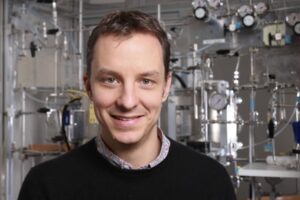
Jeremy Luterbacher was born in Switzerland in 1984 and received a B.Sc and M.Sc. in chemical engineering from the École Polytechnique Fédérale in Lausanne (EPFL), Switzerland in 2007. He spent a year as a visiting scientist at the Massachusetts Institute of Technology (MIT) working in Jeff Tester’s lab. Jeremy then moved to Cornell University in Ithaca, New York, to pursue doctoral studies in Prof. Larry Walker’s lab. After receiving his PhD in 2012, Jeremy joined the Great Lakes Bioenergy Research Center at the University of Wisconsin-Madison as a Swiss National Science Foundation Postdoctoral Scholar under the supervision of Prof. Jim Dumesic. In 2014, Jeremy returned to EPFL as a Tenure-Track Assistant Professor and head of the Laboratory of Sustainable and Catalytic Processing. He was promoted to Associate Professor in 2021.
Since arriving at EPFL, Jeremy has been awarded a European Research Council (ERC) starting grant in 2017 and a Swiss National Science Foundation Consolidator Grant in 2023. In 2019, he received the Werner Prize from the Swiss Chemical Society for outstanding independent chemical research in Switzerland. His work on lignin stabilization was recognized by the 2019 EPFL Latsis prize and the 2021 ACS Sustainable Chemistry & Engineering Lectureship. He is also an associate editor at Science Advances.

Riikka Räisänen, PhD, is a professor in craft science and craft pedagogy at the University of Helsinki, Finland. She has background in natural sciences, i.e. chemistry, physics and environmental studies, textile technology, craft research and education. Her research interests are in natural and bio-based colourants, sustainable textiles, as well as craft culture and textile heritage. She currently leads several research projects on bio-based colourants, such as Strategic Research Council (at Research Council of Finland) funded BioColour (https://biocolour.fi) and EU-Horizon funded Colour4CRAFTS (https://colour4crafts.eu/ ). Räisänen has over 20 years of internationally recognized academic expertise in natural and biobased colourants research. In 2016 she was awarded with the silver medal of the Society of Dyers and Colourists UK for the work within natural colourants.

